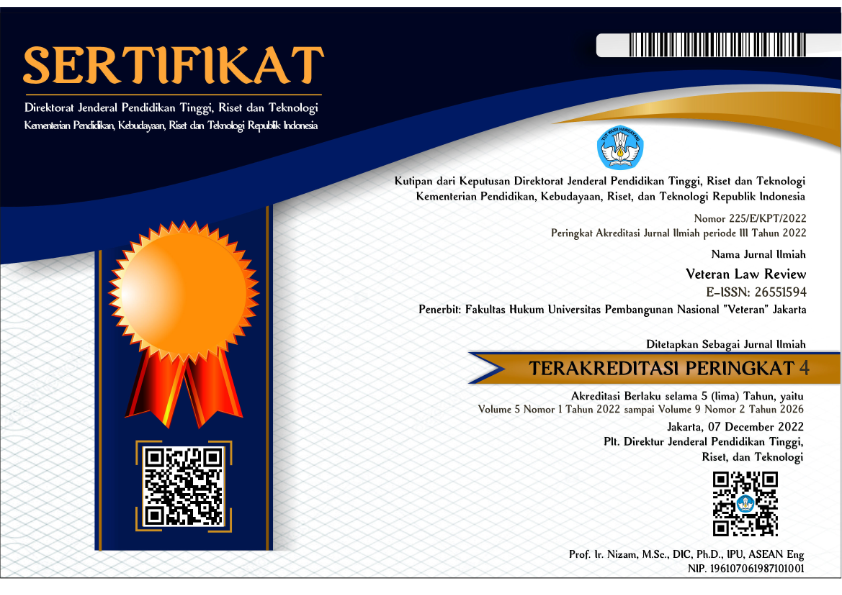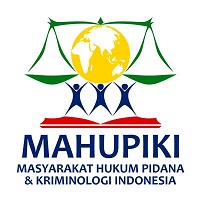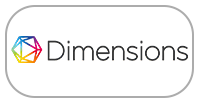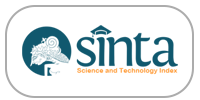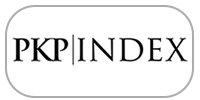Optimizing Legal Strategies: Combating Corruption through Anti-Corruption Education in Universities
DOI:
https://doi.org/10.35586/velrev.v6i2.6477Keywords:
Anti-Corruption Education, Combating Corruption, Legal StrategiesAbstract
This research proposes an innovative approach to combating corruption, through anti-corruption education within the university environment. Given the increasing cases of corruption in Indonesia, a preventive approach through education is essential in cultivating a generation that is aware of the negative consequences of corruption. The methodology employed is normative research with a legal and literature analysis approach. The analysis results indicate that anti-corruption education in universities holds significant potential in shaping anti-corruption attitudes and values among students. This finding underscores the urgency of integrating courses that examine corruption issues and ethics into university curricula. Based on these findings, the legal strategy of anti-corruption education in universities plays a significant role in reducing corrupt practices. Strengthening educational content that fosters anti-corruption awareness, along with active collaboration among educational institutions, the government, and society, is considered necessary for implementing this strategy.
Downloads
References
Amiruddin, M. F., & Afifah, B. N. (2021). Implementasi Pendidikan Karakter Anti Korupsi di MAN 4 Kediri. Salimiya: Jurnal Studi Ilmu Keagamaan Islam, 2(3), 168-184.
Abdullah, A. (2023). Kejujuran sebagai Nilai Penting dalam Pendidikan Anti Korupsi Bagi Mahasiswa. Universal Grace Journal, 1(2), 173-183.
Firmansyah, V. Z., & Syam, F. (2021). Penguatan Hukum Administrasi Negara Pencegah Praktik Korupsi dalam Diri Pemerintahan Indonesia. Integritas: Jurnal Antikorupsi, 7(2), 325-344.
Lailiyah, K. (2022). Peran Perguruan Tinggi Dalam Membangun Generasi Anti Korupsi Melalui Pendekatan Pendidikan Anti Korupsi. Journal Legal Dialectics, 1(2).
Nida Amalia Dewi, & Dedi. (2022). Pendidikan Anti Korupsi Di Perguruan Tinggi Sebagai Upaya Preventif Pencegahan Korupsi. JUSTICES: Journal of Law, 1(1), 22–34.
Purnama, W. W. (2021). Efektivitas Peraturan Pertanahan dalam Menangani Pelanggaran Penggunaan Tanah tanpa Izin. JURNAL PENELITIAN SERAMBI HUKUM, 14(02), 42-48.
Purnama, W. W. (2022). Implementasi Pendistribusian Royalti: Strategi Inovatif untuk Pemenuhan Hak Ekonomi Pencipta Lagu dan Musik. Jurnal Hukum Media Justitia Nusantara (MJN), 12(1), 189-198.
Purnama, W. W. (2022). Regulasi Mata Uang Kripto di Indonesia: Pandangan Regulator dan Implikasi Hukum bagi Ekonomi Masyarakat. JURNAL PENELITIAN SERAMBI HUKUM, 15(02), 96-101.
Purnama, W. W. (2020). Tantangan dan Peluang Dalam Penegakan Hukum Terhadap Insider Trading di Pasar Modal. Jurnal Hukum Media Justitia Nusantara (MJN), 10(2), 134-141.
Sari, N. P. R. D. (2023). PENDIDIKAN ANTI KORUPSI DALAM KACAMATA AGAMA HINDU. Jurnal Ilmu Hukum Sui Generis, 3(1), 14-25.
Sintia, N. K. A. (2023). Implementasi Pembentukan Karakter dan Integritas Mahasiswa Melalui PAK (PENDIDIKAN ANTI KORUPSI). Jurnal Ilmu Hukum Sui Generis, 3(1), 45-60.
Siregar, A. A., & Chastanti, I. (2022). IMPLEMENTASI PENDIDIKAN ANTIKORUPSI DI SEKOLAH. Sosial Horizon: Jurnal Pendidikan Sosial, 9(1), 13-22.
Suhandi, M. F., Ginanjar, D., & Agustin, S. (2023). Higher Education As An Anti-Corruption Forming Agent. The ES Journal of Learning and Educations, 1(01), 22-29.
Sumaryati, S., Murtiningsih, S., & Maharani, S. D. P. (2020). Penguatan Pendidikan Antikorupsi Perspektif Esensialisme: Penguatan Pendidikan Antikorupsi Perspektif Esensialisme. Integritas: Jurnal Antikorupsi, 6(1), 1-14.
Wati, S. (2022). Pentingnya Pendidikan Tentang Anti Korupsi Kepada Mahasiswa. ULIL ALBAB: Jurnal Ilmiah Multidisiplin, 1(6), 1827-1834.
Wibawa, D. S., Agustian, M., & Warmiyati, M. T. (2021). Pendidikan Anti Korupsi sebagai Tindakan Preventif Perilaku Koruptif. Muqoddima Jurnal Pemikiran dan Riset Sosiologi, 2(1), 1-18.
Duryat, H. M., & Sahrodi, H. J. (2021). Manajemen Pendidikan AntiKorupsi:(Wacana Kritis atas Etika Kekuasaan dan Budaya Mematuhi Melalui Pendidikan). Yogyakarta: K-Media.
Muhammad Syahrum, S. T. (2022). Pengantar Metodologi Penelitian Hukum: Kajian Penelitian Normatif, Empiris, Penulisan Proposal, Laporan Skripsi dan Tesis. Bengkalis: Dotplus Publisher.
Syamsuddin, A. (2008). Integritas penegak hukum: hakim, jaksa, polisi, dan pengacara. Jakarta: Penerbit Buku Kompas.
Widiyastuti, N. E., Sanulita, H., Waty, E., Qani'ah, B., Purnama, W. W., Tawil, M. R., ... & Rumata, N. A. (2023). INOVASI & PENGEMBANGAN KARYA TULIS ILMIAH: Panduan Lengkap Untuk Penelitian dan Mahasiswa. Jambi: PT. Sonpedia Publishing Indonesia.
Peraturan Pemerintah (PP) Nomor 43 Tahun 2018 tentang Tata Cara Pelaksanaan Peran Serta Masyarakat dan Pemberian Penghargaan dalam Pencegahan dan Pemberantasan Tindak Pidana Korupsi (Lembaran Negara Republik Indonesia Tahun 2018 Nomor 157, Tambahan Lembaran Negara Nomor 6250).
Peraturan Menteri Riset, Teknologi, Dan Pendidikan Tinggi Republik Indonesia Nomor 33 Tahun 2019 tentang Penyelenggaraan Pendidikan Antikorupsi di Perguruan Tinggi (Berita Negara Republik Indonesia Tahun 2019 Nomor 1024).
Undang-undang Republik Indonesia Nomor 20 Tahun 2001 tentang Perubahan Atas Undang-Undang Nomor 31 Tahun 1999 tentang Pemberantasan Tindak Pidana Korupsi (Lembaran Negara Republik Indonesia Tahun 2001 Nomor 134, Tambahan Lembaran Negara Nomor 4150).
Undang-undang Nomor 12 Tahun 2012 tentang Pendidikan Tinggi (Lembaran Negara Republik Indonesia Tahun 2012 Nomor 158, Tambahan Lembaran Negara Nomor 5336).
Undang-undang Nomor 19 Tahun 2019 Tentang Perubahan Kedua Atas Undang-undang Nomor 30 Tahun 2002 Tentang Komisi Pemberantasan Tindak Pidana Korupsi (Lembaran Negara Republik Indonesia Tahun 2019 Nomor 197, Tambahan Lembaran Negara Nomor 6409).
Downloads
Published
How to Cite
Issue
Section
License
Copyright (c) 2023 Veteran Law Review

This work is licensed under a Creative Commons Attribution-ShareAlike 4.0 International License.
Copyright (c) 2022 Veteran Law Review Journal
Veteran Law Review © 2022 by Faculty of Law Universitas Pembangunan Nasional "Veteran" Jakarta is licensed under Creative Commons Attribution 4.0 International

1. License
The non-commercial use of the article will be governed by the Creative Commons Attribution license as currently displayed on Creative Commons Attribution 4.0 International.
2. Author(s)' Warranties
The author warrants that the article is original, written by the stated author(s), has not been published before, contains no unlawful statements, does not infringe the rights of others, is subject to copyright that is vested exclusively in the author, and free of any third party rights, and that any necessary written permissions to quote from other sources have been obtained by the author(s).
3. User/Public Rights
VELREV's spirit is to disseminate articles published are as free as possible. Under the Creative Commons Attribution-ShareAlike 4.0 International License. VELREV permits users to copy, distribute, display, and perform the work for non-commercial purposes only. Users will also need to attribute authors and VELREV to distributing works in the journal and other media of publications.
4. Rights of Authors
Authors retain all their rights to the published works, such as (but not limited to) the following rights;
- Reproduce the work
- Prepare derivative works based upon the work
- Distribute copies of the work
- Perform the work publicly
- Display the work publicly
- Copyright and other proprietary rights relating to the article, such as patent rights,
- The right to self-archive the article,
- The right to enter into separate, additional contractual arrangements for the non-exclusive distribution of the article's published version (e.g., post it to an institutional repository or publish it in a book), with an acknowledgement of its initial publication in this journal (Veteran Law Review).
5. Co-Authorship
If the article was jointly prepared by more than one author, any author submitting the manuscript warrants that he/she has been authorized by all co-authors to be agreed on this copyright and license notice (agreement) on their behalf, and agrees to inform his/her co-authors of the terms of this policy. VELREV will not be held liable for anything that may arise due to the author's internal dispute. VELREV will only communicate with the corresponding author.
6. Royalties
Being an open accessed journal and disseminating articles for free under the Creative Commons license term mentioned, author(s) are aware that VELREV entitles the author(s) to no royalties or other fees.
7. Miscellaneous
VELREV will publish the article (or have it published) in the journal if the article’s editorial process is successfully completed. JOSI's editors may modify the article to a style of punctuation, spelling, capitalization, referencing, and usage that deems appropriate. The author acknowledges that the article may be published so that it will be publicly accessible and such access will be free of charge for the readers as mentioned in point 3.

